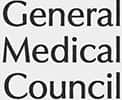Male menopause is a more common term for andropause, which refers to the symptoms men experience as their testosterone levels decrease with age. Although this decline in testosterone levels is genuine and can cause several symptoms, the term “male menopause” is slightly misleading, as it implies a sudden drop in testosterone in middle age, similar to what occurs in female menopause.
Age-related changes in male hormone levels differ significantly from those experienced by women. But some men do develop physical and emotional symptoms when they reach their late 40s or 50s, which occur due to a drop in testosterone production.
Read on for more information about the effects of male menopause and the treatment options available if you’re experiencing testosterone deficiency.
What Is Male Menopause?
Not all men experience the symptoms associated with male menopause, but if you’ve reached middle age and are feeling down, low on energy and experiencing a loss of sex drive, low testosterone levels may be a cause. Male menopause and andropause are both common names for this group of symptoms, but the condition may also be referred to as late-onset hypogonadism.
A drop in testosterone is completely normal as men get older, with levels declining steadily at a rate of 1% per year from the age of 30. However, some men may lose more than this and experience symptoms that negatively affect their everyday lives, which is when they may find it beneficial to get their hormone levels checked.
Symptoms of Male Menopause
Male menopause can cause the following physical and psychological symptoms, which may worsen as you get older:
– Depression or sadness
– Low energy
– Loss of sex drive
– Erectile dysfunction
– Mood swings and irritability
– Reduced muscle mass and feelings of physical weakness
– Insomnia
– Poor concentration and short-term memory
– Decreased motivation
– Lowered self-confidence
– Increased body fat
– Gynecomastia, or development of “man boobs”
– Decreased bone density
– Infertility.
What Causes Male Menopause?
There are several reasons why men may develop these symptoms, not all of which are hormone-related.
Lifestyle Choices
Unhealthy lifestyle choices can catch up with you as you get older and cause some of the above symptoms. A lack of sleep, poor diet, or not getting enough exercise could be the issue, as could smoking or drinking too much alcohol.
Personal Issues
Men suffering from stress, anxiety or depression may experience insomnia, mood swings, erectile dysfunction and loss of sex drive. Psychological problems may be brought about by work, relationships, family or money issues — or result from a “midlife crisis”.
Late-Onset Hypogonadism
When lifestyle or psychological issues aren’t responsible for symptoms of male menopause, they may be the result of hypogonadism, a condition in which the testes don’t produce enough testosterone. Some men are born with hypogonadism, but it can also develop later in life.
Diagnosing Male Menopause
Male menopause or testosterone deficiency can be diagnosed by blood tests used to measure your hormone levels.
How to Treat Male Menopause
If test results suggest your testosterone levels are lower than normal, there are two types of treatment you can try.
Make Changes to Your Lifestyle
There are ways to increase testosterone levels naturally, which you could try first before seeking medical treatment. Taking steps to reduce stress, get enough sleep, eat healthy, balanced meals and exercise more often may help with symptoms of male menopause and make you feel more energised.
Testosterone Replacement Therapy
If your testosterone levels are still too low after making healthy lifestyle changes, testosterone replacement therapy (TRT) can help. Boosting your testosterone levels can relieve male menopause symptoms by correcting the hormone deficiency causing them. This treatment can be administered orally, with gels or through testosterone injections.










